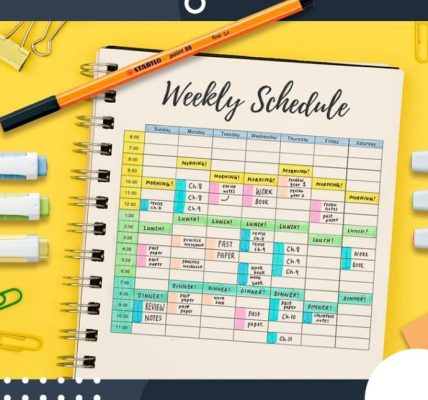Neither the school nor high school teaches you ways to study well. At least they did not teach me any technique or strategy. In my first year of career, I got tired of memorizing. So, I started to worry about how to study well for exams, in more effective, fun and faster ways.
Without overdoing it, learning ways to study well and quickly allowed me to raise my grades well enough; in many subjects, I went up to more than two points.
I doubt that I would have been able to get such good grades without any technique of memorization or study. The University is hard and you have to learn a lot of data and knowledge.

The advice that I will tell you will be used for exams, history, English, competitions, language, primary, final, summon or test, chemistry, periodic table. In short, any subject or knowledge that you have to learn.
Finally, before you begin, remember that effort is the most important thing!
15 Tips to study well
- Bridge Rewards
- Eliminate Distractions
- Choose an appropriate type of music
- Start studying in advance
- Create mental maps
- Use the technique of association
- Exercise or take walks before the exams
- Have the right mindset
- Try to get interested in what you study
- Study with energy and without hunger
- Plan the material to study
- Alternate places of study
- Practice the test: Give fictive exams
- Avoid studying the night before
- Other Tips
Let’s discuss.
Bridge Rewards
Thinking about having 3-4 or 5 hours of study ahead discourages a lot.
But there is a way to make it much simpler:
- Rest every 50-60 minutes and do something pleasing for 10 minutes
- Have coffee with a friend
- Walk your dog
- To have a snack.

It is about being aware that the effort is not going to be infinite, but that you will have to do things that you like during the period in which you are studying.
Also, pay a big reward at the end of the period.
For example, you have been studying all day or all morning and you end up at 8:00 p.m.:
- Go visit your partner
- Put a movie
- Go have a drink with your friends
- Practice your favorite sport
- Do whatever you like.
Eliminate Distractions

Are you the typical student in the library looking at WhatsApp every minute or watching who walks through the door?
So, I’ve seen hundreds and probably studied 1 hour out of every 4 that were sitting.
To arrive at an optimal state of concentration it will take approximately 10 minutes.
If you get to that state and interrupt it, you’ll have to start over.
Read also: 5 of the Most Scenic Student Flats in London
That is why it is so important to eliminate distractions:
- Avoid social networking and Whatsapp. Hide the cell phone or turn it off.
- If you work with the computer/laptop, use programs or applications that block access to social networks (in the productivity section of extensions for chrome you can find several)
- Do not have the TV in your eyes
- If you study well in the library, try to put yourself in a place that does not allow you to distract.
Check this: http://cassyfiano.com/study-exam-period-09-easy-techniques/
Choose an appropriate type of music
Rap, pop, electronic or rock are not the best styles to listen to if you want to be focused.
Some tips regarding music:
- Listen to classical music
- Put on YouTube “music for concentration”.

Other tips:
- Avoid looking for every minute of the music you like
- Choose a list of at least 50 minutes and start studying
- Avoid the radio as it distracts the voice of the presenters.
Start studying in advance
In my career years I hardly ever studied the same day of the exam or even the day before.
Not even for the most important exams such as selectivity, partial or final.
This is not because I approved without studying, but because I studied months in advance.
If you study a test that you have in three months for 3 hours a week, you will learn much better.
Moreover, the knowledge will settle in your memory in the long term, that is, you can use them in your real life and you will keep them for a long time.
If you study the day before, or two or three days before, you may approve, but the knowledge stays in the short-term memory and will end up being lost.
Studying days before serves only to approve, you become a student you approve with mediocre knowledge.
Create mental maps
Mental maps are one of the best ways to remember the structure of a content. If you have to develop long topics, you will be an excellent tool.
You may also like: How to prepare for back-to-school tips 2017
Use the technique of association
It is excellent for learning names, data and in general anything that you have to memorize.
If you have to learn difficult names (like in medicine, physiology, pharmacy, biology) you will solve a big problem and you will remember them with ease. Relate numbers to something.
You simply have to relate a number to something (an object, an animal, a person) that you remember well.
Exercise or take walks before the exams
Research at the University of Illinois showed evidence that 20
minutes of exercise before a test can improve performance.
On many occasions, I have been playing tennis the day before the exams.
And that served me not to stress too much, and even take away.
As I had studied for at least 1 month almost daily, I already had the knowledge in the long-term memory and would not forget me on the exam if I was calm.
In my opinion, it is a general mistake – both parents and students – to think that the day of the exam or the day before should be bitter, without going out and studying all day.
The exam does not approve the day before, you approve it during all the hours that you have dedicated the previous months or weeks.
Have the right mindset

In my case, the mentality has been key to being able to get very good grades and not cost me my health.
Some classmates (90% of Psychology students are women) had anxiety attacks, excessive stress, or even cried before or after the tests.
I think it’s because the result is given too much importance and I do not want to lose importance to approve, but you will not die if you do not get it.
A healthy mindset is:
“If I study well for months I will have a lot of chances to approve, and if I suspend, I will be calm because I have tried hard.”
With that way of thinking, you will avoid the stress and anxiety of the exams and if you study in advance will approve most of the time.
Try to get interested in what you study well
If you are disgusted with what you are studying you will advance like an ant.
But if you have a real interest, it will not cost you effort to study. It will be like spending free time informing you about what you like.
Study well with energy and without hunger
Being hungry will make you distracted and powerless, making concentration more difficult.
Therefore, it is very important that you have had breakfast or lunch before beginning to study.
Among other foods, almonds and fruits are good choices.
Plan the material to study well
If you have 300 pages to study, you will get dizzy when you start.
But if you divide 300 pages within 30 days it fits 10 pages a day, which is quite affordable. In 20 days it would be 15 pages a day.
If you comply with the rule of studying months or weeks before, you can plan yourself calmly and effectively.
Alternate places of study well
If you alternate the places where you study you will improve the attention and the retention of the learning.
Also, studying for weeks in one place can become tiring and boring.
Alternating between various libraries or study rooms and your home is a good choice.
Practice the test: Give fictive exams
Testing yourself or probing tests is much more effective than underlining or re-reading. You will be asking yourself possible questions and you will be practicing for the real test. That is, you have done many possible exams before and the actual exam will be one more.
In addition, probably in the “fictitious exams” you will ask questions that will coincide with those of the real exam. The more you try, the better.
Avoid studying the night before
In the examination, you have to be with the mind awake. You have to demonstrate for an hour or more the knowledge that you have acquired for weeks. If you go sleepy, you will be in low attendance, with fatigue, you will have little energy and you will make mistakes.
See also: 5 ways to survive as a student in Toronto
Other tips
– Forget about “I’m going to suspend” or “I have not studied”
In my career – and as I understand it in many others – the competition was fierce.
My companions used to say:
- I have not studied anything
- I’m going to suspend, I’ve been fatal
- It is a pessimism that serves as a defense of self-esteem.
- If you are pessimistic and suspend, you do not take the disappointment nor remain as the “fool” for others.
However, it is very unpleasant to hear these nonsensical complaints and also adopt the habit of being pessimistic.
On the other hand, self-esteem is not built like that, that is more to destroy it.
– Test type tests?
I have done many test type tests and have their pros and cons. Some people are good and others evil.
And there are some tricks:
- Although it seems obvious, read the instructions
- If errors do not subtract, always choose an option
- Answer the easy questions first and leave the difficult questions to the end
- False answers are often poorly described and shorter
- True answers tend to be longer and use a qualifying language that is not open to discussion
- The answer “All of the above are true” is often correct
- “All of the above are false” is often false (creating false alternatives is difficult for the examiner)
- Answers with “never” or “always” are often false
- If you choose an option and then you hesitate a lot, leave the first option you chose (if you are clear that you were wrong).
That is all. And what other tricks or tips about study well do you know? I am interested in your opinion. Thank you!









